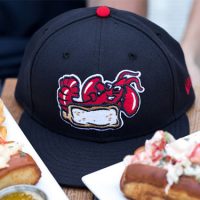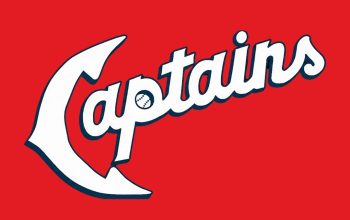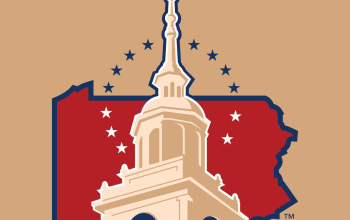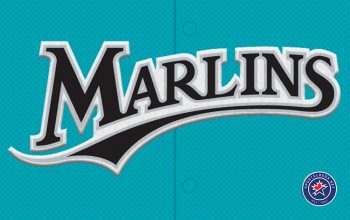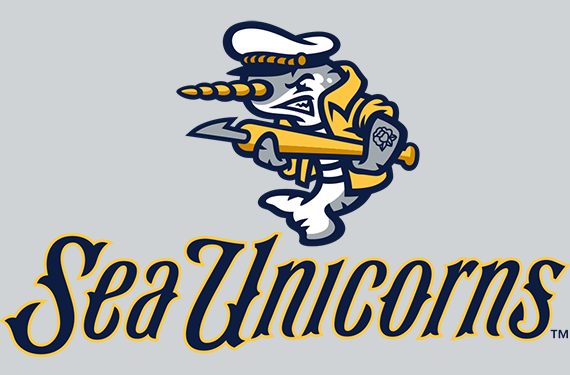
If ancient nautical mythology and Horatio McCallister, the sea captain from the Simpsons, got married and had a baby, their offspring would very likely be the new identity of the Connecticut Tigers, the latest franchise in minor league baseball to ditch their parent club’s brand in favor of a unique look. The short-season Class A Tigers announced today that they will take the field in 2020 as the Norwich Sea Unicorns.
Per the team, taking on a unique identity appropriate to the local community is part of a larger commitment to baseball in Norwich.
“We plan on being here for a long time,” said the team’s Senior Vice President C.J. Knudsen. “In August we signed a 10-year lease with the city of Norwich, which will keep us in the area. Part of the deal was we wanted to create more of a Norwich brand. Hence, the reason why we’ll no longer be the Connecticut Tigers and we will be the Norwich Sea Unicorns.”
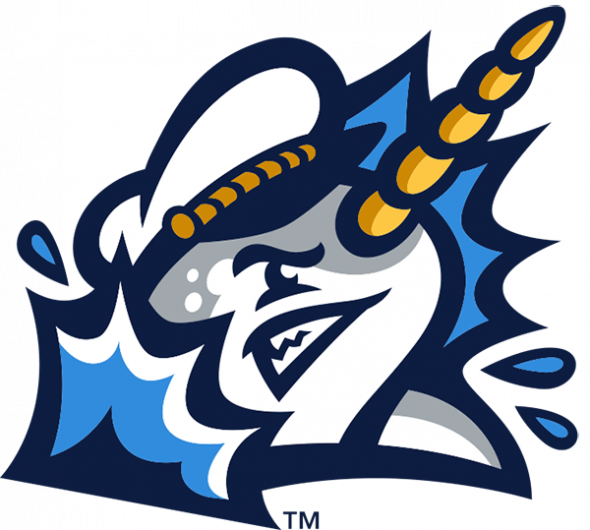
The name beat out four other finalists in a name-the-team contest, including an alliterative but less fanciful option, Norwich Narwhals. The decision not only to go with the name Sea Unicorns, but to put said Sea Unicorn in a captain’s hat and yellow slicker was about subverting expectations and mixing traditional roles.
“We had this idea of this sea captain,” said Jason Klein of Brandiose. “What was the sea captain in mythology? What would the sea captain see out there on his journey either across the Atlantic or down south in the Caribbean? Your eyes would play tricks on you.”
Often sea captains would see narwhals, whales that are closely related to belugas but with tusks that look like unicorn horns. While narwhals are real animals, they have been the subject of legends dating back centuries in various cultures, from Inuits who tell stories of a woman dragged under water whose hair became a horn, to medieval Europeans who attributed magical powers to their tusks, to the movie Elf, in which Mr. Narwhal tells Buddy he hopes he finds his dad.
“That question, is the narwhal a real thing or fictitious, that was what made the sea unicorn mythology of the seafaring lore, so enticing,” Klein said.
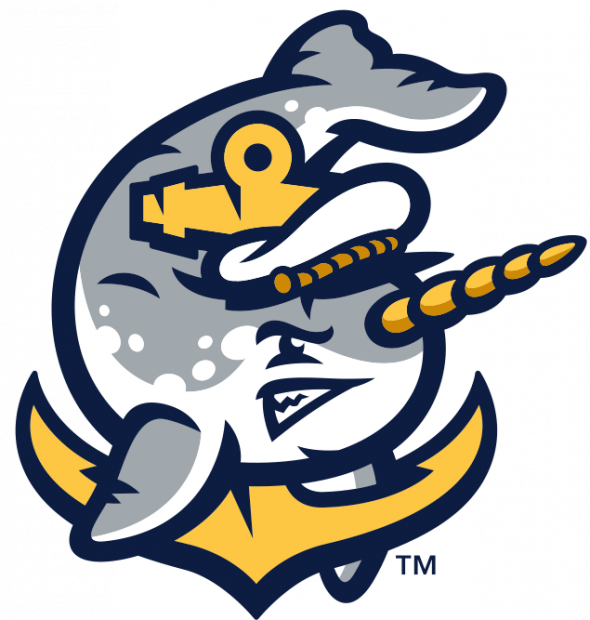
But why make the narwhal in the logo the sea captain?
“We loved the idea of prey becoming predators,” Klein said. “The narwhal is such a badass.”
This Sea Unicorn might be a kid-friendly cartoon, but his bad-assery is an important part of his persona.
“When you hear the name Sea Unicorns, you have to ask yourself, what is that?” Knudsen said. “I assume it’s going to be all rainbows and cupcakes, but when you see the logo, it’s nothing like that at all.”

While this brand is centered around a cartoon narwhal, the first inclinations were in a different direction.
“We were into really this whole New England, classy, old-timey, mercantile, harbor, the architecture,” Klein said. “It was a very wealthy community in history.”
That may be a surprise to some who follow the industry of minor league baseball branding, but the guys from Brandiose are traditionalists in some regards.
“We’re kind of purists in the fact that jersey lettering has to be a script, and the road has to be a block,” Klein said. “But that script has to be a marriage between something highly local and Major League Baseball, and something highly local and block.”
In the case of Norwich, that highly local element is the city’s close association with the sea. The nautical theme, and specifically the typography in this brand were inspired in part by a trip the Brandiose guys and team representatives took through Norwich, which was once a major mercantile port.
“We went into this coffee shop where they had all these historic photos of ships where the lettering NORWICH is written out on these steamships they had back in the day,” Klein said. “The block font is taken straight from ships that used that on the side of them in early nautical history.”
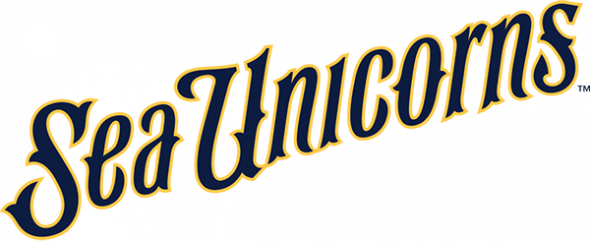
“The jersey script is very much Major League Baseball meets nautical lettering,” Klein said.
The inspiration for part of the team’s colors comes from of a different element of the city’s history.
“One of the reasons why we have a lot of gold is because in 1959 they paved one of the streets in Norwich with gold flakes,” Knudsen said, “and so they used to tell people coming into town that the streets were paved with gold.”
The team is aware that stepping away from their parent club’s identity (a move I applaud) to a whimsical, cartoony brand is a dramatic shift. In the end, though, they hope fans will take the opportunity to appreciate the entertainment value of the change—and not take any of it too seriously.
“At the end of the day, the first thing that we think about, and we hope our fans think about, is this is all about fun,” Knudsen said. “This is minor league baseball. We’re not changing the world here.”
They may not be changing the world, but the Sea Unicorns have changed the face of baseball in Norwich—and if things go well, they may just help Buddy find his dad.



